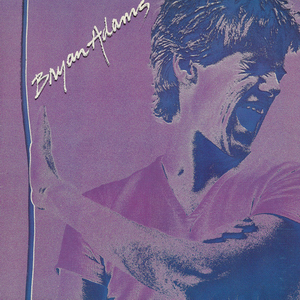
Bryan Adams is the debut solo studio album by Canadian singer-songwriter Bryan Adams, after previously being the lead vocalist of Canadian hard rock band Sweeney Todd, released on 12 February 1980 by A&M Records. "Hidin' From Love" reached number 64 and "Give Me Your Love" reached number 91 on Canada's RPM 100 Singles chart.
Limblifter is a Canadian alternative rock group from Vancouver, formed in 1996.
Nicholas George Gilder is a British-Canadian musician who first came to prominence as the frontman for the glam rock band Sweeney Todd. He later had a successful solo career as a singer/songwriter.

"One Tin Soldier" is a 1960s counterculture era anti-war song written by Dennis Lambert and Brian Potter. Canadian pop group The Original Caste first recorded it in 1969 for both the TA label and its parent Bell label.

"December, 1963 " is a song originally performed by the Four Seasons, written by original Four Seasons keyboard player Bob Gaudio and his future wife Judy Parker, produced by Gaudio, and included on the group's album Who Loves You (1975).
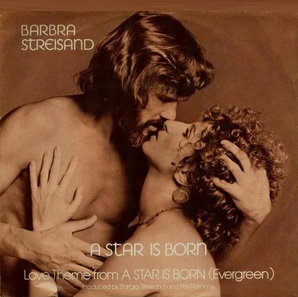
"Evergreen" is the theme song from the 1976 film A Star Is Born. It was composed and performed by American singer, songwriter, actress and director Barbra Streisand with lyrics by Paul Williams, and arranged by Ian Freebairn-Smith. The song was released on the soundtrack album to A Star Is Born.

Rock N'Roll Love Letter is an album by the Bay City Rollers. It was a North America-only release, issued in early 1976 by Arista Records, catalogue #4071.

"Saturday Night" is a song recorded by the Scottish pop rock band Bay City Rollers. It was written and produced by Bill Martin and Phil Coulter. The tune is an upbeat rock number with a memorable hook, in which the word "Saturday" is spelled out in a rhythmic, enthusiastic chant.

"Who's Crying Now" is a song by the American rock band Journey. It was written by Jonathan Cain and Steve Perry. It was released in 1981 as the first single from Escape and reached No. 4 on both the Billboard Hot 100 and the Mainstream Rock Tracks charts. The song charted at No. 46 in the UK Singles Chart, and was the band's highest charting single in the UK until "Don't Stop Believin'" incurred a resurgence in UK popularity in 2009.
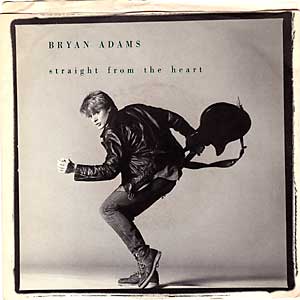
"Straight from the Heart" is a song recorded by Canadian rock musician Bryan Adams. It was released in 1983 as the lead single from his third studio album, Cuts Like a Knife.
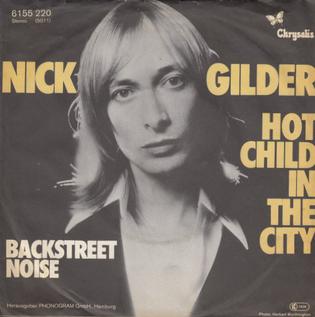
"Hot Child in the City" is a song by English-Canadian musician Nick Gilder. It was released in June 1978 as a single from the album City Nights. It went to No. 1 both in Canada and in the United States. It was not his first No. 1 single: as the lead singer of Sweeney Todd, he had hit No. 1 in Canada on June 26, 1976 with the single "Roxy Roller", which remained at the top for three weeks. He won 2 Juno Awards in Canada and a People's Choice Award in the US. According to The Billboard Book of Number 1 Hits, it held the record for taking the longest amount of weeks to reach No. 1 at the time, taking 21 weeks to reach the summit. The song became a platinum record.
Tim Moore is an American pop singer and songwriter who recorded four albums for Asylum Records in the 1970s. Moore's songs were praised by critics and admired by a diverse range of peers including Keith Richards, Jimmy Webb, James Taylor and Michael McDonald.

"This Masquerade" is a song written by American singer and musician Leon Russell. It was originally recorded in 1972 by Russell for his album Carney and as a B-side for the album's hit single "Tight Rope". The song was then covered on Helen Reddy's 1972 album, I Am Woman. It was then recorded by American vocal duo, the Carpenters, for their 1973 album Now & Then and as the B-side of the Carpenters's single "Please Mr. Postman". Three years later, "This Masquerade" was recorded by American singer and guitarist George Benson, who released it on his 1976 album, Breezin'. Benson's version, featuring Jorge Dalto on piano, was released as a single and became the first big hit of his career.

Sweeney Todd is the debut album by Canadian glam rock band Sweeney Todd. The single "Roxy Roller" reached #1 in the RPM national singles survey on June 26, 1976, and held that position for three weeks. Singer Nick Gilder and guitarist Jim McCulloch later went on to solo careers. They have both since returned to the band.

You Know Who You Are is the first solo album by Nick Gilder, released in 1977 on Chrysalis Records.
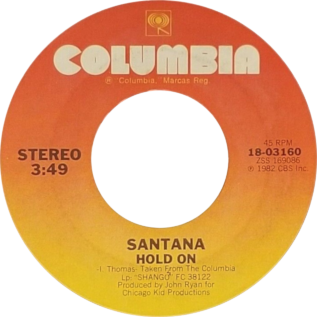
"Hold On" is a song written and first recorded by the Canadian singer and songwriter Ian Thomas, on his 1981 album The Runner. His version reached No. 28 on the Canadian pop singles chart.

"What's Your Name" is a rock song by Lynyrd Skynyrd, the opening track on their album Street Survivors. It peaked at No. 13 on the U.S. Billboard Hot 100 and No. 6 in Canada.
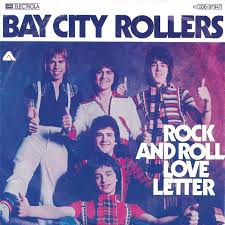
"Rock and Roll Love Letter" is the second single from American Tim Moore's second album, Behind the Eyes. Tim Moore's original version was not successful. It was later covered by the band Bay City Rollers, and that version became a Top 40 hit.

"Roxy Roller" is a song originally recorded by the glam rock band Sweeney Todd in 1975 with Nick Gilder on vocals. It was written by Jim McCulloch and Nick Gilder. In total, four versions of the song were released in 1976:















